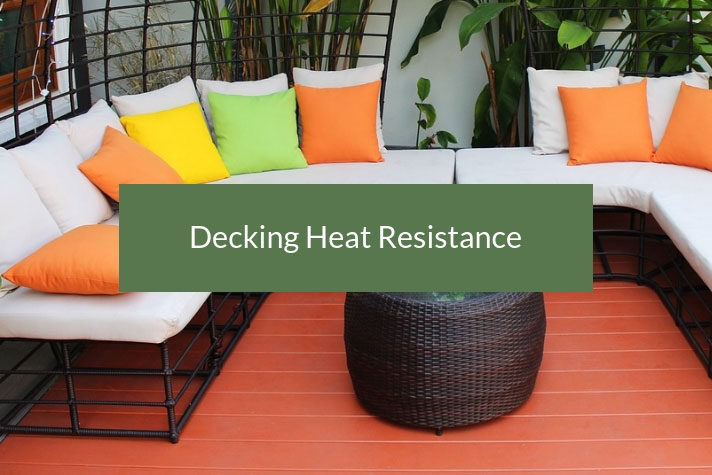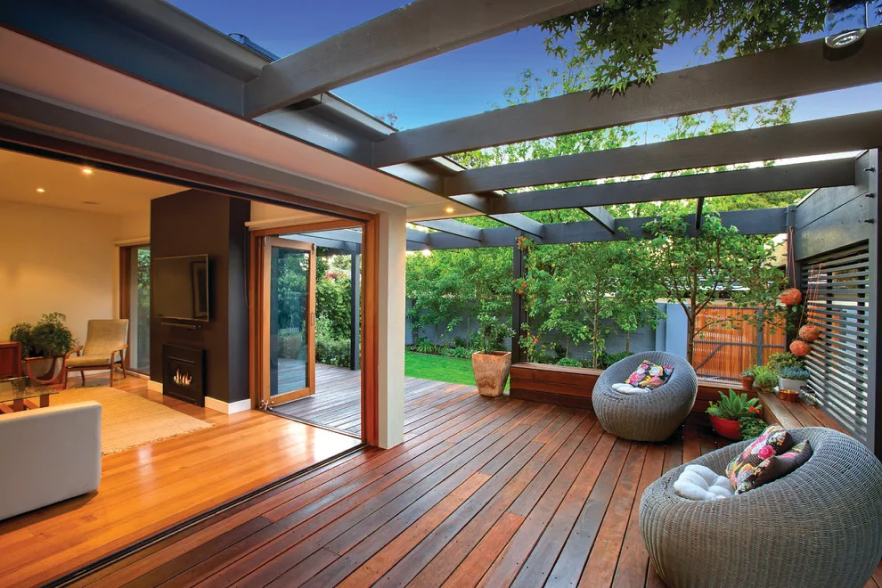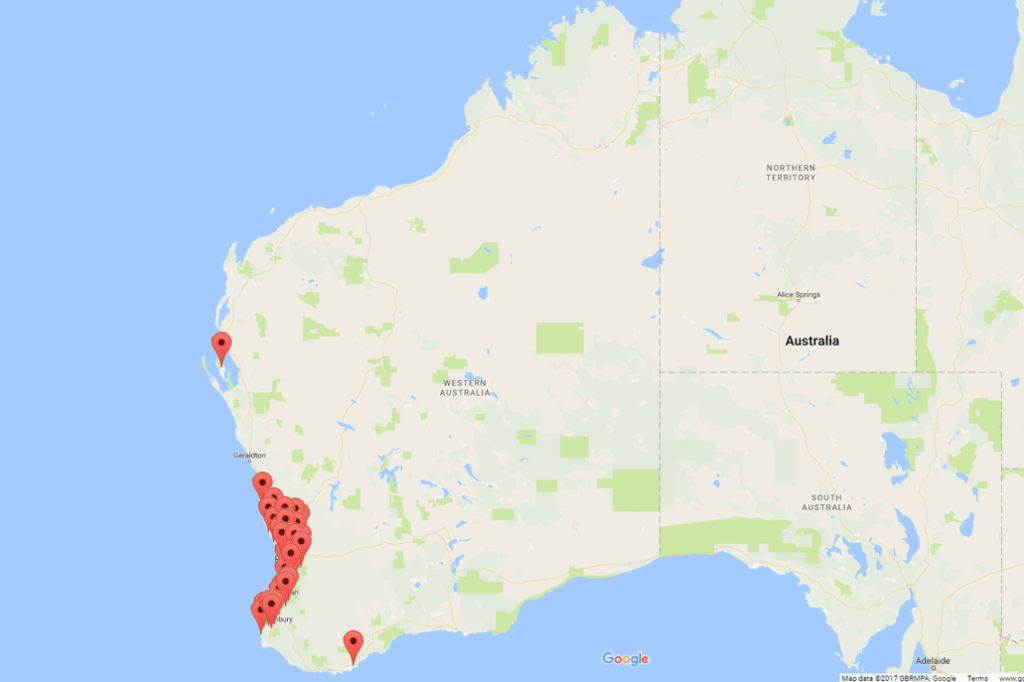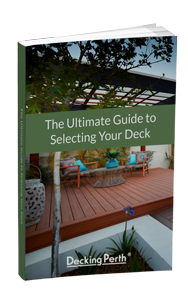Adding a deck to your home not only adds value to your house but also creates a great outdoor entertaining area that will allow you to spend more time outside with family and friends.
If you’re considering making this important addition to your home, it’s vital to know whether you should use composite or timber for your deck. Choosing the right material will make a significant difference when it comes to the use and enjoyment you’ll get from your deck.
The Australian summer is the best time to get your new deck installed if you want to be ready for Christmas, outdoor dining, and warm evenings entertaining family and friends around the pool. There are aspects of Perth’s hot climate that mean timber decking might not be the best choice when it comes to longevity, functionality, and safety.
Soaking up the sun
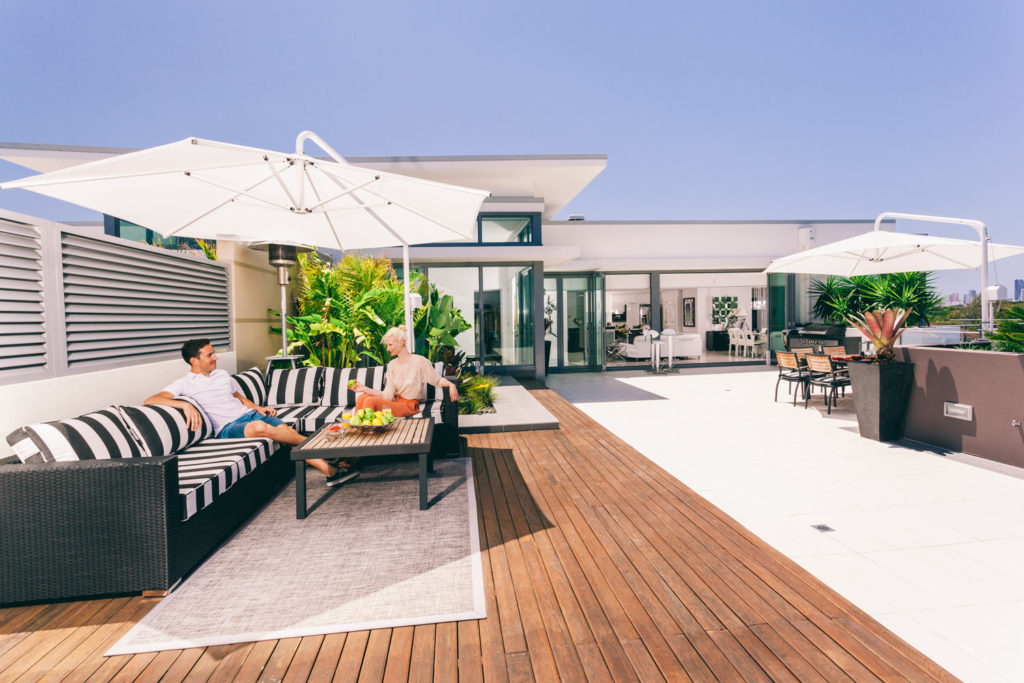
The rate at which your deck soaks up heat from the sun will define how long you can walk on it barefoot during the summer, potentially limiting the functionality of your deck. Timber can feel the burn when it’s exposed to high temperatures, causing it to splinter and shrink. In hot, consistently sun-exposed areas, PVC and aluminium decks can also get very hot underfoot.
While composite decking products can also retain heat after a long day in direct sunlight, they won’t shrink or splinter like timber. If you plan on building a deck in time for our summer that will be exposed to direct sunlight, consider alternatives to timber such as composites or bushfire-approved fibre cement boards. These splinter-resistant materials are a safe option for families and anyone who wants to avoid painful slivers.
Colour counts
Although each decking material – whether timber or composite – will vary in how hot it can get, the primary test of how much heat your decking holds is the colour of the chosen material.
As a general rule of thumb, darker coloured decking materials and finishes retain more heat than lighter ones. Darker woods like merbau and jarrah weather well, but because the timbers of the wood are so dark, they will hold more heat than lighter woods such as the commonly-used treated pine, spotted gum, or blackbutt.
If you’re building a deck that will be in direct sunlight, look for lighter coloured decking options and deeper grain products, such as Trex composite decking material.
Other ways to cool your deck
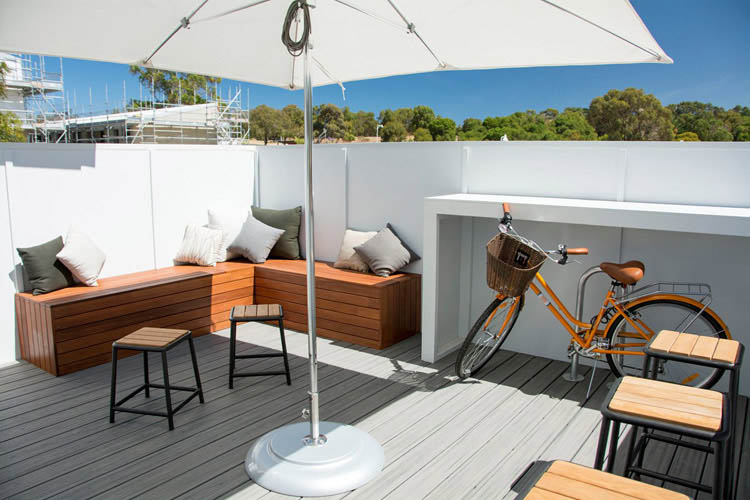
While you can head inside when things start to heat up, your decking must be able to endure the elements.
Creating shade over your deck by planting trees, constructing an awning or pergola, or adding an umbrella can minimise direct sun exposure and dramatically reduce heat build-up.
Outdoor rugs don’t become as hot as plastic, timber, or composite decking, which can make it easier to walk on outdoor surfaces. Arug that can stand up to the elements is a great way to increase the functionality of your decking area if you’re worried about heat retention, just remember to put it away before the rain hits.
Another alternative is misting fans, which are most effective in dryer climates like Perth, WA. There are many setups available that can attach to your house or an outdoor structure to help reduce the heat out on your deck.
Bushfire performance
With the increase in the frequency of bushfires and expansion of homes into bushland areas around Perth, fire protection has never been more critical. If a newly constructed building is assessed as being in a bushfire area, they are given a level of risk and assigned a BAL rating (bushfire attack level).
The Australian Standards which cover the bushfire safety requirements restricts the use of timber in an area with a BAL higher than 12.5 unless it is one of several recognised bushfire resistant timbers including merbau, spotted gum, and blackbutt.
If you do live in a bushfire-prone area, consider TREX Transcend composite decking which has a BAL of 29or Trex Contour rated at BAL19which burns slower than traditional wood and is self estinquising.
Best heat resistant decking
Choosing the right material for installing decking in your home is important as it affects not only the look but the usability of your outdoor living and entertainment area.
To make sure you get the most out of your deck and consider the right things.
It explores consideration factors such as appearance, care & cleaning, durability, cost and more.
Have you got questions on decking materials? Get in touch today!
